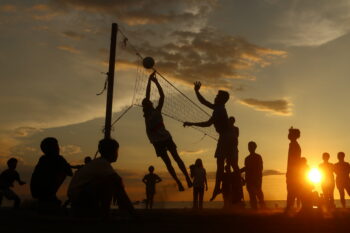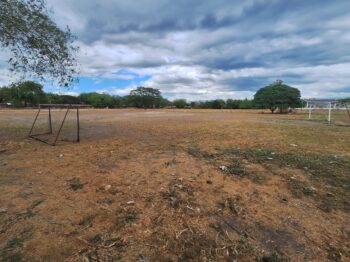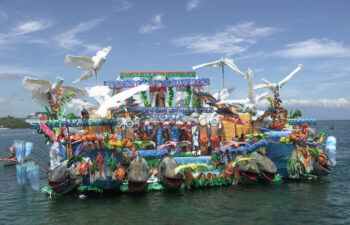
(This piece was chosen as the Best Essay in the On-the-Spot Online Essay Writing Contest in celebration of the third founding anniversary of the Bangsamoro Autonomous Region in Muslim Mindanao).
The challenge of achieving peace has been an ongoing struggle for all of mankind. Peace is a word we’ve been hearing for centuries but somehow it never wears out. It is now beginning to seem like our life task is to attain peace or in Moro terms, to embody “salam.”
The Peace Process of the Bangsamoro is no foreign concept to each of us. It is something we have yearned for and shed not just sweat and tears, but even blood for. Alas, with the Creator’s grace, we have now the Bangsamoro Autonomous Region in Muslim Mindanao.
As someone from the Bangsa, I think the one that describes my role the most in sustaining our gains of peace is the words of Hoda Katebi where she wrote “recognize the fights that you are inheriting and continuing. There is a lot that is new, but there is a lot that is also the same. We do not want a return to the ‘precedented times.’ We want unprecedented growth of our movements and care for our people.”
She continued “recognize the communities that you are part of and get to build alongside. Recognize the work that has been happening and will continue to happen. You are one part of an ecosystem.”
I still vividly remember how when I coincidentally came across this writing of an internet user, whom I do not know personally, sent a burning sensation in my heart. It prompted me to try to address what I think is
the problem with the Bangsamoro Youth of today and that is detachment from our struggle for peace.
I have always found it ironic and tragic comedy of how during the height of the Palestinian cause a lot of Moros were feeling sorry for them and are empathizing with them without even realizing that we have and are continually experiencing, to some degree, a similarity of what they are going through. We too have been driven away from our ancestral homes. We too have been immorally incorporated into the Republic of the Philippines. But these facts, not enough of us know. Many of us are still blinded, unawakened. The conversation about Bangsamoro is still exclusive to the old, the Jihadist, the officials, and the historians.
When every people who claim to have roots in the indigenous land should enable themselves to join the conversation, many still choose to turn a blind eye. But what is good of a person who wants to help others but cannot even help his own people? What is a person if he does not know his
own roots?
By that day I’ve read what Ms. Hoda Katebi wrote I think I have somehow decided that my role in sustaining our gains of peace is to tell the people close to me of what we have gone through. To continually raise awareness of the historical injustices that we have suffered from. To let the Bangsamoro Narrative be heard. To tell our stories from our own voices. To be seen by what we truly are and not through them prejudicial and stereotypical lens of the media and the imperial Luzon. That we are not rebels like how they painted us to be. We are not radicals but rather people who are inheriting a fight and that is the fight for the right to self-determination, a basic right that we have long been deprived of.
I wanted and want to be a person who paints her Bangsa with the colorful pigments that it deserves for we were never people of just black and white, we too have cultures, values, beliefs, and practices that merits to be put in
canvasses and displayed in museums of the great.
To be Moro is something to be proud of, it is not worth any less than that.
The cliché saying goes, “the only permanent thing in this world is change”. So just like peace, the concept of change is enduring and perhaps, this means to attain peace we need to change. But there are two types of changes, for the good and for the bad. Our goal is to determine what it takes to change for the good.
Our goal is to determine how to not go back to ‘unprecedented times.’
How are we not going to regress after progress? How are we not going to worsen after the betterment? These are questions that prompt answers and this is where the importance of upholding Moral Governance in changing or transforming people’s lives in BARMM, takes the head.
There are different paths that we take as we course the journey of governance. It is a matter of what guidance are we going to take. Would we be fueled by self-interest? By capitalism? By socialism? Or is it high time that we let our morality lead?
After the industrial revolution, leading while taking morals into account has been seen as a weakness. For as long as the means meet the ends, what is there to think of? And while this has led to many “advancements,” this also made us lose touch with our humanness. We have abandoned the battle against poverty because it has been enough for us that we are not the ones suffering from it. We have resulted in corruption because what is important is we benefit from it. Our sense of community has been
thrown off the roof to be forgotten. And so now, we have reaped what we have sowed because how can we expect a world of good if we are not willing to pay for the price of conscience, respect, and understanding?
By letting our means justify our ends, we forgot that it is our means that determines our end, and so we have now seen our end.
Luckily, we have our quote to go back to, change is permanent for as long as we live. We still have time to correct the mistakes of the past and so Moral Governance is needed to be upheld more than ever. We need to return community trust for us to reach true and sturdy advancements. As they say, if you want to travel fast, go alone but if you want to go far, go together. I admire BARMM for prioritizing the grassroots communities and cleansing the systems despite the backlashes.
We still have a long way to go and indeed, we are not without lapses. But I believe that with good intentions and sincerity, all that what has been done and sacrificed would not go to waste. We just need to keep ourselves continually grounded on our missions and visions but open to new ways to achieve that. I would also like to add that for me part of moral governance is the acknowledgment that as constituents, we are one with our government but that does not mean that we put blind trust in them. We are to observe critical thinking and should continually urge them to give better services. In the same lines, it should not also mean that because the government has its lapses, we should abandon them.
I would like to emphasize that these two practices can and should
coexist. Remember, we are one in the peace struggle. Governance is not only about the officials but also about the people being governed. Morality should start within us and we should let it transform our lives so that we can transform the whole of Bangsamoro.
Roles. Gains of Peace. BARMM. Moral Governance. Change. Words that I would not only ponder upon as I write this essay but even as this comes to an end. Because the story is not over and we would continue writing pages.
(This piece, written by Princess Azizah M. Mangandog of Bangon, Marawi City,
was chosen as the Best Essay in the On-the-Spot Online Essay Writing Contest on the theme, “Changing People’s Lives, Transforming the Bangsamoro: Celebrating and Sustaining the Gains of Peace and Moroal Governacne,” held via zoom on January 18, 2022, as part of the activities in celebration of the third founding anniversary of the Bangsamoro Autonomous Region in Muslim Mindanao).







